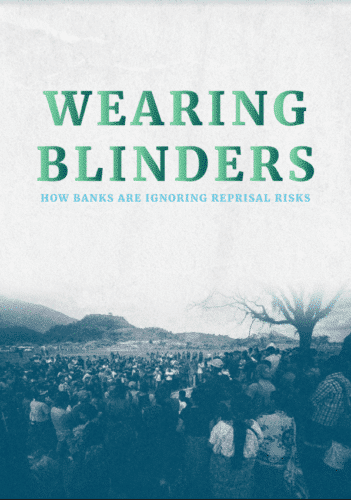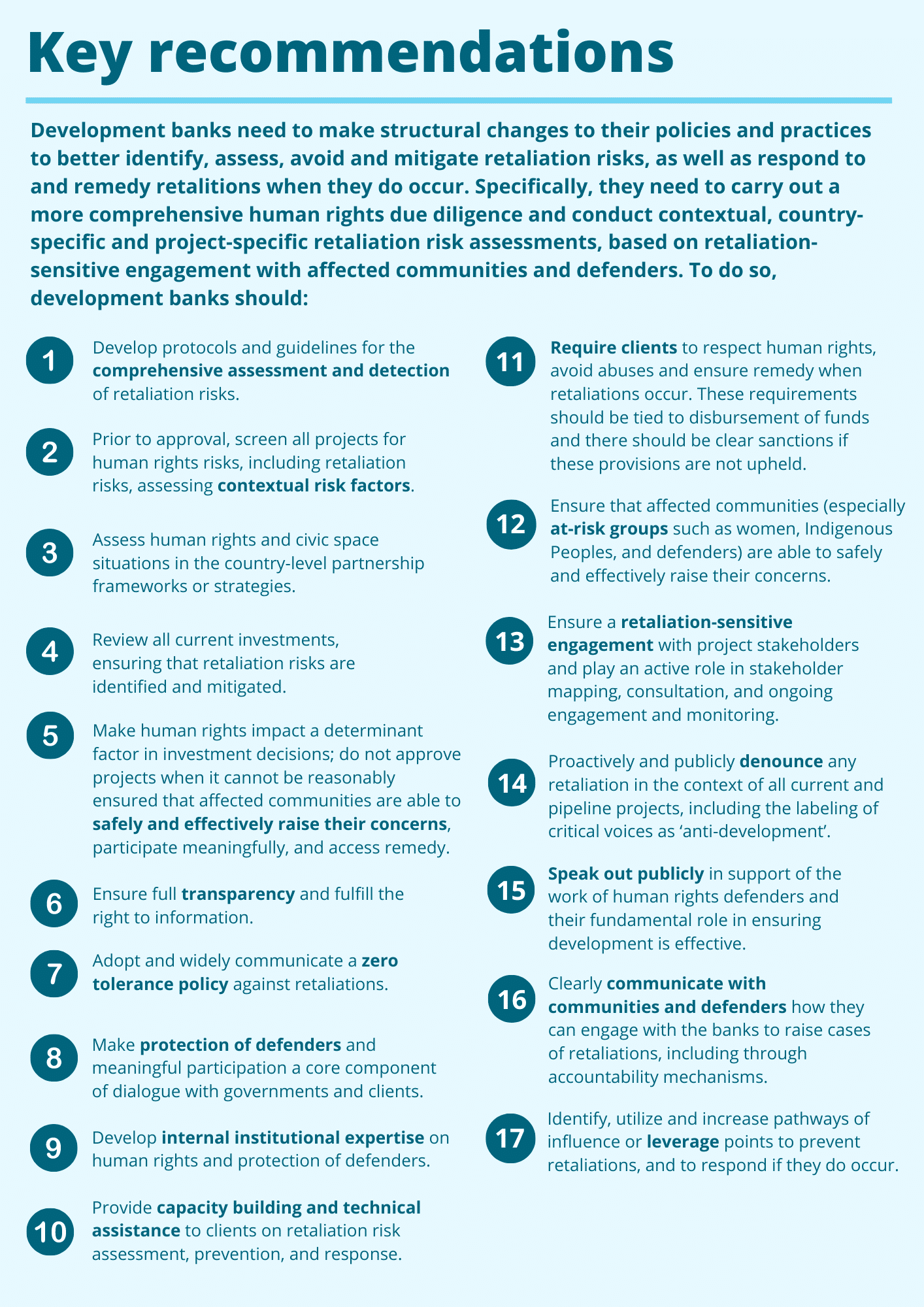
On paper, most development finance institutions (DFIs) are committed to respect the rights of communities to be consulted and participate in decision-making processes around projects that affect their lives. Yet, meaningful participation is not possible when those who resist, criticize or raise concerns about development activities are subjected to retaliation and face attacks simply for speaking out.
The report “Wearing Blinders: How development banks are ignoring reprisal risks”, published by the Coalition for Human Rights in Development in June 2022, exposes how development banks are often failing to identify, assess, and mitigate reprisal risks. Through five case studies, analyzing projects in Armenia, Guatemala, the Philippines, Turkmenistan and Uganda, the report shows how banks tend to shirk responsibility and ignore reprisal risks, and provides a list of recommendations to prevent and address reprisals.
Key Findings
The cases analyzed in “Wearing Blinders” show that:
- During the project assessment phase, development banks tend to ignore reprisal risks and are often failing to conduct meaningful human rights due diligence.
- When development banks fail to identify and mitigate risks early on, then reprisals tend to escalate.
- Meaningful participation and reprisal-sensitive consultations are key: if projects are imposed without engaging people impacted by them and without offering opportunities to safely express their concerns, the risk of social tension increases.
- In some cases, even when development banks were warned about reprisals taking place in the context of the projects they were funding, they refused to take actions or – when they eventually started addressing reprisals – it was already too late and they did not provide compensation for the harm caused.
- Reprisals against human rights defenders can be prevented: development banks should introduce reprisal risk assessment in their human rights due diligence processes, engage in reprisal-sensitive consultations, address reprisals before they escalate, and ensure access to remedy.

Before making decisions on whether to invest in a project or not, development banks should assess the local context and the relations between their clients and the local communities. When banks make decisions disregarding communities’ concerns, then conflicts escalate and those raising their voices end up being attacked. Due diligence is crucial to detect risks and prevent human rights abuses.
Would you like to help us hold development banks accountable and call on them to stop reprisals?
Stay in Touch
